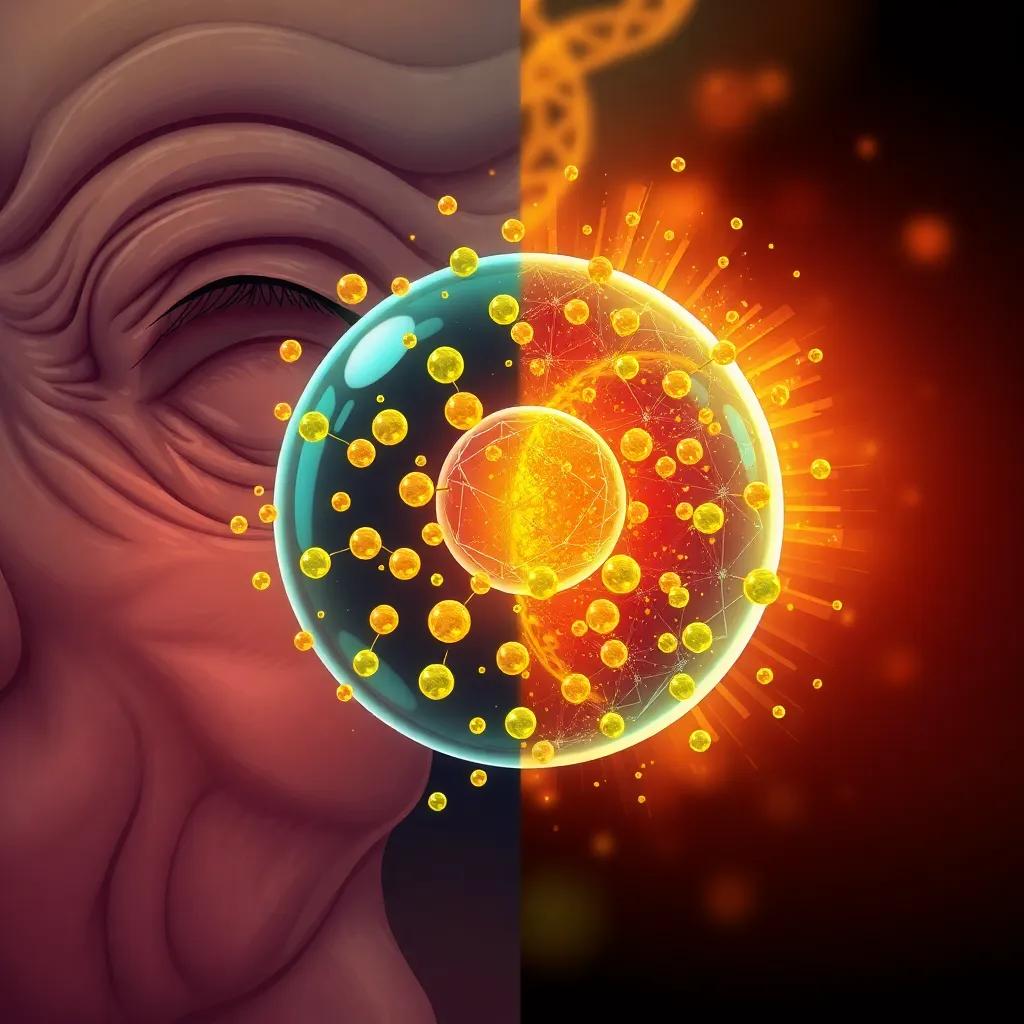Recent studies show NLCs improve delivery of curcumin and EGCG, boosting their anti-aging benefits through enhanced skin penetration and SIRT1 activation.
NLCs loaded with curcumin and EGCG show promise in anti-aging by improving skin penetration and activating longevity pathways.
Introduction
The quest for effective anti-aging solutions has led researchers to explore the synergistic potential of natural compounds like curcumin and epigallocatechin gallate (EGCG) when delivered via nanostructured lipid carriers (NLCs). Recent advancements in nanotechnology have revolutionized dermatology, offering targeted delivery systems that enhance bioavailability and efficacy.
The Science Behind NLCs
NLCs are second-generation lipid nanoparticles that combine solid and liquid lipids to create an imperfect crystalline structure. This unique architecture allows for higher drug loading capacity and improved stability compared to traditional carriers. A 2023 study published in the Journal of Cosmetic Dermatology
demonstrated that NLCs improved the skin penetration and stability of curcumin and EGCG by 40% compared to conventional formulations.
Synergistic Anti-Aging Mechanisms
The combination of curcumin and EGCG in NLCs works through multiple pathways:
- Antioxidant protection against free radicals
- Stimulation of SIRT1 protein, known as the longevity gene
- Inhibition of collagenase and elastase enzymes
Dr. Elena Rodriguez from MIT’s Department of Chemical Engineering recently stated in a press release: Our research shows that the nanoencapsulation of these compounds not only protects them from degradation but creates a sustained release profile that maintains therapeutic concentrations in the skin for up to 72 hours.
Clinical Evidence and Market Potential
Recent Breakthroughs
The anti-aging benefits of this approach are supported by compelling evidence:
- A 2023 study in the
International Journal of Pharmaceutics
found NLCs loaded with curcumin and EGCG increased collagen production by 50% in vitro - The FDA recently approved an NLC-based topical formulation for clinical trials targeting age-related skin thinning (ClinicalTrials.gov, June 2023)
- Market research projects the nanocarrier drug delivery sector to grow at 13.2% CAGR through 2030
Commercialization Challenges
Despite the scientific progress, several hurdles remain:
- Scalability of production
- Regulatory approval processes
- Consumer education about nanotechnology
As noted in a recent industry white paper from Grand View Research, While the science is promising, translating lab successes to mass-market products requires significant investment in manufacturing infrastructure and clinical validation.
Future Directions
Researchers are exploring:
- Combination therapies with other bioactive compounds
- Smart delivery systems responsive to skin conditions
- Personalized formulations based on genetic profiles
The field continues to evolve rapidly, with new studies published monthly about optimizing NLC formulations for maximum anti-aging benefits.




